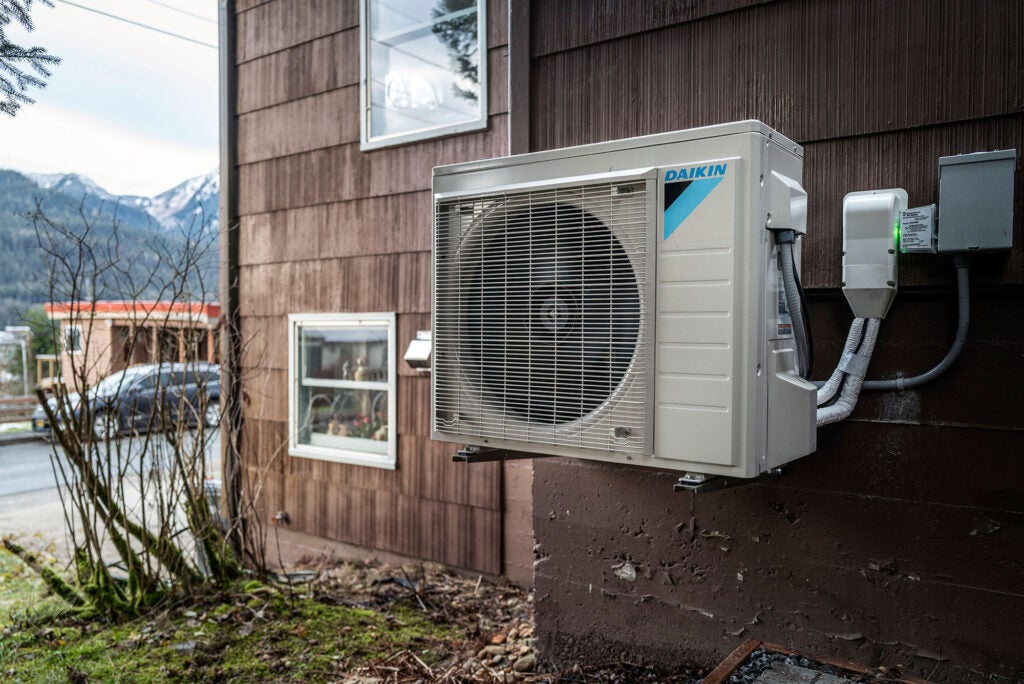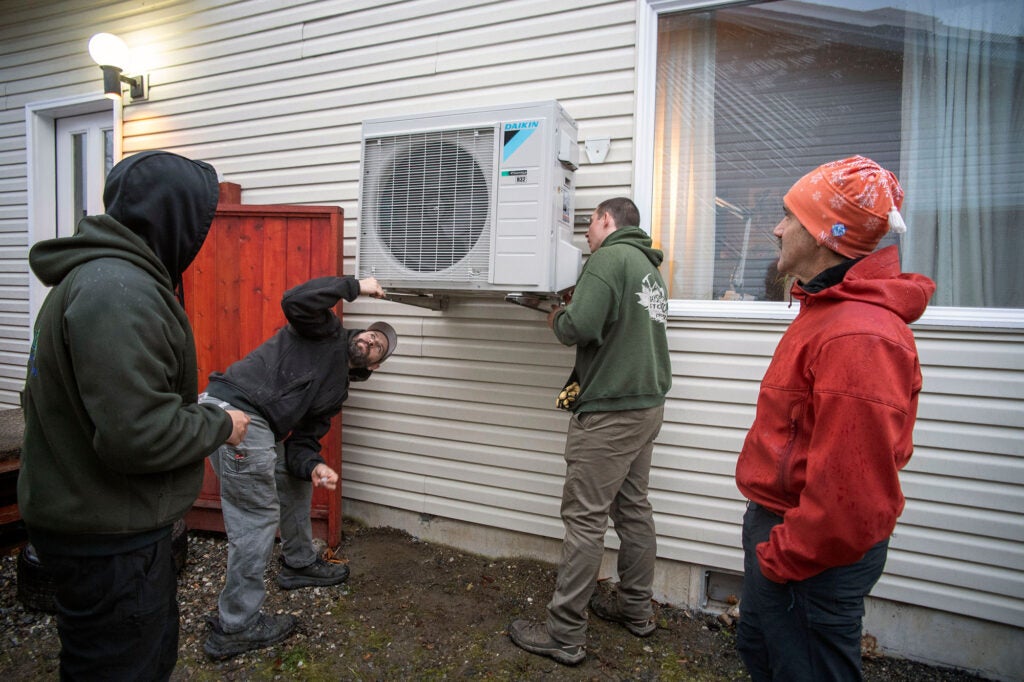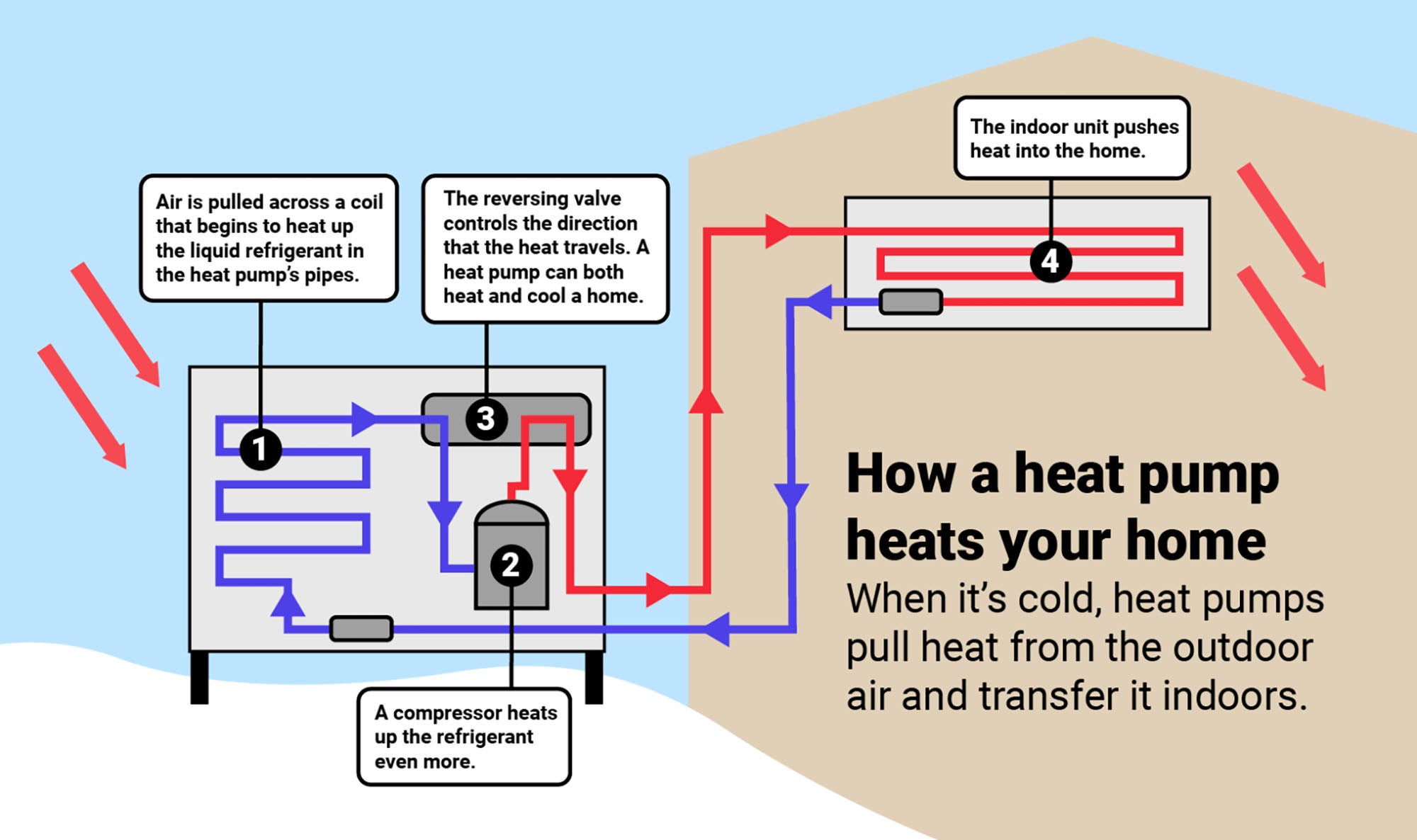Washington’s Future is Bright as it Leads the Charge to Electrify Buildings
Washington demonstrates legal pathways for states and local governments seeking to transition buildings off fossil fuels to clean, safe electricity.
If you live in Washington state, you may be heartened to hear our state has earned a national reputation as a leader in the growing movement to electrify the appliances in our homes and buildings.
Last November, a Washington state agency — the State Building Code Council — adopted some of the most progressive state building codes in the nation, encouraging the big shift to nonpolluting appliances by setting energy efficiency targets that strongly incentivize the use of heat pumps over polluting methane gas. A month later, the City of Seattle enacted a new law supporting building electrification through new energy efficiency performance standards in certain buildings greater than 20,000 square feet, including existing construction.
If you don’t live in Washington, you may want to take a closer look at what’s happening to see whether these innovative approaches might work in your state.
Electricity is cleaner and safer than gas
First, some context about why building electrification is so important. We’ve known for a while that buildings are one of the primary sources of climate pollution, both in Washington and nationally, accounting for roughly a third of U.S. greenhouse gas emissions. To meet ambitious climate protection goals set by states or nationally, getting dated fuels like methane (aka “natural”) gas out of our buildings is a critical step forward.
But on top of protecting our climate, emerging scientific data confirms that electrifying buildings is simply better for our health. Gas-burning stoves are a major source of indoor air pollution and have been linked to significant increases in childhood asthma. Even when vented properly, burning gas for heat and hot water contributes to nitrogen oxide pollution, a key ingredient in pesky smog in cities. Finally, we can’t forget the propensity of gas to periodically leak and blow up entire buildings.
For all these reasons and more, Washington has been leading the nation in the transition away from gas for heat, hot water, and cooking, and replacing it with modern and efficient electric alternatives like heat pumps.
Of course, none of this has been without a fight. Regrettably, the gas industry continues to fight the transition to clean energy tooth and nail, through a combination of aggressive litigation, pouring money into local elections, and misinformation falsely touting gas as clean and safe.

An outside unit to a heat pump system outside a home. (Michael Penn for Earthjustice)
Speedbumps, but no roadblocks, on the path to electrification
In Washington, the State Building Code Council first adopted strict codes requiring heat pumps in 2022, but revisions were withdrawn after a well-publicized and controversial legal decision from the federal Ninth Circuit Court of Appeals voiding one of the nation’s first building electrification ordinances by the City of Berkeley.
Washington’s codes have been challenged in court by the gas industry, but we’re already beaten back one previous attack and we’re confident the codes will stand. In dismissing the industry-led request for an injunction to halt Washington’s revised building codes, a federal judge said the “court will stay out of the way.”
Following the Ninth Circuit decision on Berkeley, states and cities were unsure what legal paths to electrification remained, but that ruling only closed off one path involving an outright prohibition of gas appliances in buildings. Many other pathways are proving viable. These include enacting building codes, like Washington has done, or passing laws based on improving air quality, like Seattle has done. In effect, the Berkeley ruling was a speedbump for some local electrification efforts but hardly a roadblock.
Washington’s State Building Code Council had no problem amending its code to comply with the legal standard adopted by the Ninth Circuit. The new codes take effect in March. With most new construction in Washington already powered by electricity rather than fossil fuel, the codes will ensure fossil gas in new residential and commercial buildings will soon become a polluting relic of the past.
The City of Seattle went even further than the State of Washington by setting a standard for greenhouse gas emissions from existing buildings above a certain size. With plenty of lead-in time, owners of commercial and large residential buildings will eventually have to convert fossil fuel heating and hot water systems to electric ones — saving money and reducing pollution in one step. BEPS was strongly supported by both climate advocates and labor groups given its positive economic impact. Expect other cities to follow suit soon.

Cody Galletes, left, Sonny Ashby and Robby Brian, of Alaska Plumbing and Heating, install a heat pump onto its stand at a home as Andy Romanoff, executive director of Alaska Heat Smart, right, watches in Juneau, Alaska. (Michael Penn for Earthjustice)
Gas systems are shrinking, not expanding
In Washington, the transition to electric building is also being implemented by the state Utilities and Transportation Commission (“UTC”), which oversees the state’s gas utilities. In a series of victories we’ve helped secure on behalf of our partners, the UTC has cut back on subsidies to expand the gas system, limited the ability of gas utilities to slip their lobbying and litigation expenses into their customers’ bills, and ordered utilities to start planning to shrink the gas system. This effort may gain even more momentum if the Washington State legislature adopts proposed legislation that would require at least some gas utilities to meet greenhouse gas targets and convert customers to electricity.
So what comes next? One option is more careful regulation of air emissions from gas burning appliances like furnaces and hot water heaters, something already underway in California. Washington’s governor committed to looking closely at this option in a recent announcement. This option would expand the transition to more existing buildings while cleaning up both indoor and outdoor air quality.
There are many ways states and local governments can protect their constituents, clean the air, and bend the curve on climate pollution from buildings. These efforts also make good economic sense, and we’re hopeful eventually utilities will become partners in this conversation rather than doubling down on the obviously failed status quo.
Thanks to the hard work of advocates and the enactment of smart policies, the transition to an electric future in Washington is now unstoppable. Other states should look to the Evergreen State as a model, and kick polluting gas to the curb for the sake of our climate and our lungs.
Established in 1987, Earthjustice's Northwest Regional Office has been at the forefront of many of the most significant legal decisions safeguarding the Pacific Northwest’s imperiled species, ancient forests, and waterways.
Zoe Woodcraft
Public Affairs and Communications Officer, Earthjustice
zwoodcraft@earthjustice.org
